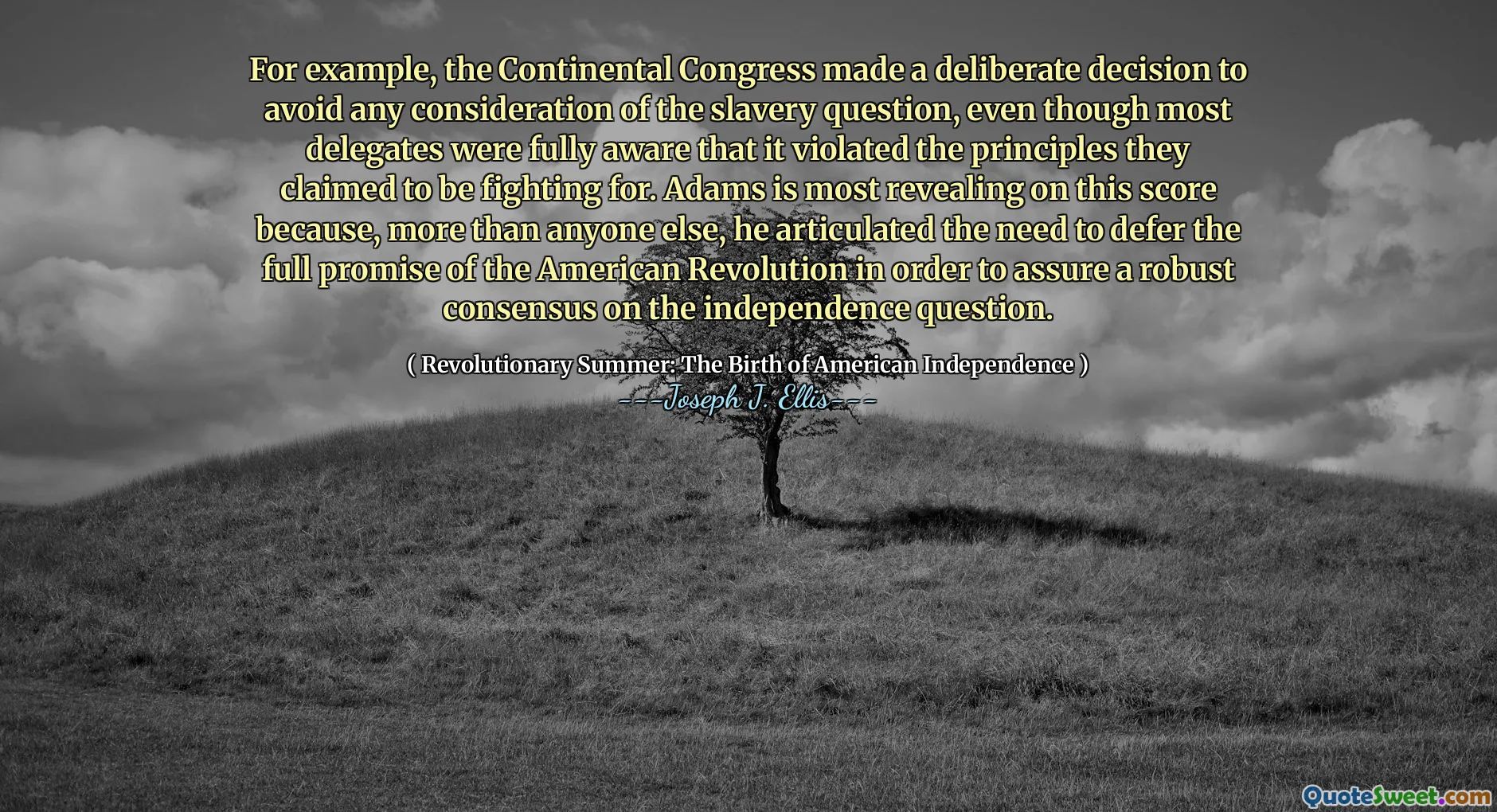
For example, the Continental Congress made a deliberate decision to avoid any consideration of the slavery question, even though most delegates were fully aware that it violated the principles they claimed to be fighting for. Adams is most revealing on this score because, more than anyone else, he articulated the need to defer the full promise of the American Revolution in order to assure a robust consensus on the independence question.
The Continental Congress consciously chose to steer clear of the slavery debate, despite many delegates recognizing its contradiction to the ideals of freedom they championed. This avoidance highlights a significant tension during the formative years of the United States, where the quest for unity on independence took precedence over confronting the moral implications of slavery.
Joseph J. Ellis emphasizes that John Adams, in particular, expressed the importance of postponing the complete realization of the American Revolution’s promises to maintain a strong collective agreement on independence. This decision underscores the complexities and compromises inherent in the founding of the nation, reflecting the difficult balance between ideals and practical politics.











